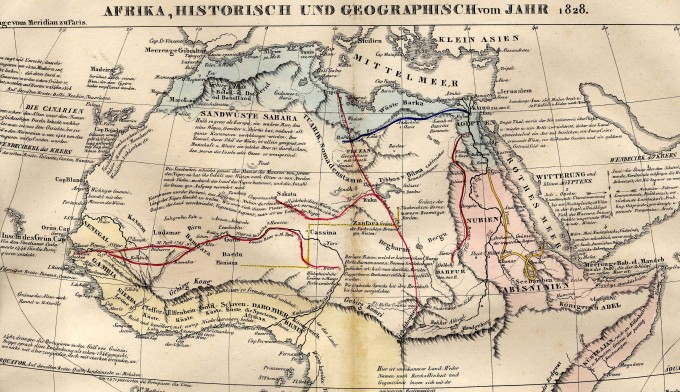December 1, 1825 – April 17, 1826
If I were Thomas Jefferson: Thus endeth this glorious peregrination through the marrow of literary confabulation between these two Argonauts of Liberty.
If I were John Adams: That did take an hour out of my life that I shall never get back.
If I were me: In the words of Philip Seymour Hoffman, “That’s that.”
This final post invites the inevitable question, who would I rather have dinner with, John Adams or Thomas Jefferson? My first impulse would be Adams. He’s more down-to-earth, honest, humorous, and talkative than Jefferson. Plus, he’s a Bostonian with that New England cynicism born of dark winter days and black flies. However, the reality is that whoever I dine with, I’ll be sitting there sipping hard cider and sucking on a pheasant bone in moronic silence as my host expounds on the philosophy and scientific contributions of Joseph Priestly. In this case, I know that Mr. Adams will browbeat me to tears, while Mr. Jefferson (the Southern gentleman) may have the grace and gentility to treat me as a valid citizen of the world. Still, I’m going with Adams. When I get back from the time machine I don’t want to say I made my decision because I was a coward.
I’ve ruined the mood of these last few lines that I’m going to share, but as you might expect from Mr. Adams, “the end” is on his mind in his second-to-last letter:
JA to TJ: “I am far from trifling with the idea of Death which is a great and solemn event. But I contemplate it without terror or dismay, “aut transit, au finit” [“either it is a transformation, or it is the end”], if finit, which I cannot believe, and do not believe, there is then an end of all but I shall never know it, and why should I dread it, which I do not; if transit I shall ever be under the same constitution and administration of Government in the Universe, and I am not afraid to trust and confide in it.”
Here is Jefferson’s final letter to Adams. The lofty rhetoric is about what I would expect, an appropriate choice for his “closing remarks”:
“My grandson Th: Jefferson Randolph, being on a visit to Boston, would think he had seen nothing were he to leave it without having seen you. Altho’ I truly sympathise with you in the trouble these interruptions give, yet I must ask for him permission to pay to you his personal respects. Like other young people he wishes to be able, in the winter nights of old age, to recount to those around him what he has heard and learnt of the Heroic age preceding his birth, and which of the Argonauts particularly he was in time to have seen. It was the lot of our early years to witness nothing but the dull monotony of colonial subservience, and of our riper ones to breast the labors and perils of working out of it. Theirs are the Halcyon calms succeeding the storm which our Argosy had so stoutly weathered. Gratify his ambition then by receiving his best bow, and my solicitude for your health by enabling him to bring me a favorable account of it. Mine is but indifferent, but not so my friendship and respect for you…”
Adams’s final letter wasn’t so profound, but his last couple of lines are also what I’d expect, a bit of piss and vinegar to wrap things up.
JA to TJ: “Our American Chivalry is the worst in the World. It has no Laws, no bounds, no definitions; it seems to be all a Caprice. My love to all your family, and best wishes for your health…”
John Adams, October 30, 1735 – July 4, 1826
Thomas Jefferson, April 13, 1743 – July 4, 1826
Yeah, that’s right, same day, same year, July the 4th. I don’t know what that means but it scares the hell out of me.
Now’s where I want to write something about how history enriches our lives and how we can find wisdom and guidance in the writings of great men. I don’t discount that at all, but you don’t want to hear it. It’s been fun and thought-provoking, but let’s not overdo it. When I was younger, I read certain books with the expectation and hope that each one would change my life, offer some breakthrough into a new level of wisdom and happiness. What I’ve learned since then is that a) that doesn’t happen, and b) sometimes it does happen, but you won’t know it until years later.
A while back I had an email exchange with a friend about our shared habit of over-analyzing both major and minor life decisions (particularly those with moral or ethical or spiritual implications) and its ineffectiveness in actually producing meaningful action. Our conclusion was to stop thinking from now on. The one consolation in this disappointing realization was my friend’s suggestion that the many years of philosophical analysis will hopefully inform, at least subconsciously, the rest of our thoughtless decisions starting now.
That may have nothing to do with the Adams-Jefferson Letters unless maybe I consider them part of a cumulative effort to learn from others (Argonauts or not), hopefully transforming me into a more thoughtful, sympathetic, and happy person. Let’s reconvene in a couple of decades and you let me know if it worked.
If you hoped for a more thorough historical analysis of the subject, I apologize. This is what happens when Gen-Xers read this kind of stuff.
I’m off for a while, maybe to pretend to work on some creative writing, maybe to scrounge for another book to entertain you with, maybe to take the red pill. Crap, I forgot if it was the red or the blue, and Wikipedia had the answer. And I was like, “No way, that’s great!”



